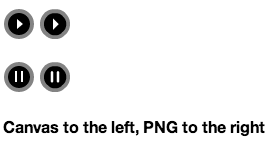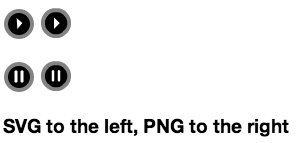It seems like new attacks keep happening several times per year against our beloved Internet. Last year was all about SOPA, and PIPA (which combined led to the Wikipedia Blackout), and ACTA, defined below.
SOPA – Stop Online Piracy Act
”To promote prosperity, creativity, entrepreneurship, and innovation by combating the theft of U.S. property, and for other purposes.” —H.R. 3261
PIPA – PROTECT IP Act
”Preventing Real Online Threats to Economic Creativity and Theft of Intellectual Property Act of 2011” —Senate Bill 968
ACTA – Anti-Counterfeiting Trade Agreement
”A multinational treaty for the purpose of establishing international standards for intellectual property rights enforcement.”
The lesser known threats we’ve seen so far is, among others, the Combating Online Infringement and Counterfeits Act (COICA), and the Commercial Felony Streaming Act (Bill S.978). As of today, we might be facing the largest threat so far, which by the looks of it is far worse than all these previous acts.
ITU – International Telecommunication Union
At the upcoming WCIT in Dubai (World Conference on International Telecommunications, organized by a government-controlled UN agency called the International Telecommunication Union), governments will consider proposals to update the ITU’s underlying treaty. Some proposals would expand the ITU’s mandate in ways that could threaten Internet openness and innovation, increase access costs, and erode human rights online.
The internet is powerful tool for communication, driving economic development, and expanding human rights. Discussions about the future of the internet should involve as many stakeholders as possible including government officials, technology experts, businesses leaders, civil society, and human rights organizations.
If some proposals at WCIT are approved, decisions about the internet would be made by a top-down, old-school government-centric agency behind closed doors. Some proposals allow for access to be cut off more easily, threaten privacy, legitimize monitoring and blocking online traffic. Others seek to impose new fees for accessing content, not to mention slowing down connection speeds. If the delicate balance of the internet is upset, it could have grave consequences for businesses and human rights.
This must be stopped.
Only governments get a vote at WCIT, so we need people from all around the world to demand that our leaders keep the internet open.
Sweden has taken a stand against this, with the deputy director of the Division of IT Policies Lena Hägglöf reassuring us with a mass e-mail today (for the concerned people who’ve e-mailed her and asked them to take a stand against the ITU changes).
Swedish:
Hej!
Tack för ditt meddelande. Regeringskansliet har fått en stark respons på frågan om hur internet ska styras, vilket återigen visar hur angelägen frågan är. Sverige anser att den nuvarande multistakeholder-modellen inte ska förändras och har ingen avsikt att verka för att internets förvaltning ska föras in under FN eller ITU. Alla bestämmelser i internationella avtal om telekommunikation som Sverige ingår ska vara förenliga med de mänskliga rättigheterna, och då särskilt yttrande- och informationsfrihet.
Se gärna it-minister Anna-Karin Hatts tal från Södertörns Högskola där hon utvecklar sina åsikter om den här frågan (och några andra frågor):
http://annakarinhatt.se/blogg/om-ett-oppet-internet-pa-sodertorns-hogskola/
Hälsningar
Lena Hägglöf
Departementsråd
Enheten för IT-politik
Näringsdepartementet
English:
Hi!
Thank you for your message. The Government Offices has received a strong response to the question of how the Internet should be governed, which yet again shows how important this issue is. Sweden reckon that the current multi-stakeholder model not should be changed, and has no intention to work for the Internets management to be brought under the UN or ITU. All regulations in international agreements regarding telecommunications that Sweden is a part of shall be consistent with human rights, especially regarding the freedom of expression and of information.
Please see Minister for Information Technology and Energy Anna-Karin Hatt’s speech from Södertörns Högskola, where she elaborates her views on this issue (and some other issues):
http://annakarinhatt.se/blogg/om-ett-oppet-internet-pa-sodertorns-hogskola/
Sincerely,
Lena Hägglöf
Deputy Director
Division of IT Policies
Ministry of Enterprise, Energy and Communications
The Swedish Ministry of Enterprise, Energy and Communications have even published a report, called ”ICT for Everyone – A Digital Agenda for Sweden”, promoting the open usage of information and communication technologies (ICT) to our benefit.
Google Asks People to Speak Out Against ITU’s Attempt to Take Over Internet Governance
“A free and open world depends on a free and open Internet. Governments alone, working behind closed doors, should not direct its future. The billions of people around the globe who use the Internet should have a voice.”
http://www.google.com/intl/en/takeaction/
This is happening as we speak! The conference is taking place in Dubai between the 3rd and 14th of December, 2012. I urge you to sign every petition you can find, starting with Google‘s and Fight for the Future‘s. Tell your governments you don’t accept this — together we can stop it!
Publicerad i
Vardagsprat och märkt
ACTA,
fight for the future,
google,
government,
international telecommunication unit,
internet,
itu,
petition,
PIPA,
piracy,
privacy,
protest,
SOPA,
wcit,
world conference on international telecommunications






